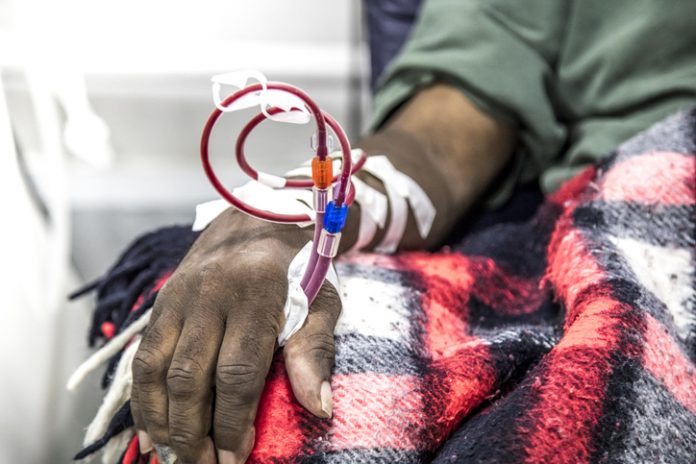A proposition that will appear on the California ballot this November 8 would require a doctor, nurse practitioner, or physician’s assistant to be present at outpatient kidney dialysis clinics during treatment hours.
The measure, Proposition 29, is being pushed by the Service Employees International Union-United Healthcare Workers (SEIU-UHW), which was also behind two similar ballot initiatives in the past. Voters rejected those measures which appeared on ballots in 2018 and 2020.
Opponents of the mandatory staffing requirement, including dialysis service providers, say clinics already offer high-quality care and are well-regulated by federal and state authorities. They also point to the fact that all dialysis patients already have their own nephrologist (kidney specialist) who directs and oversees clinical treatment in California.
Clinics operating 16 hours a day, the majority, would have to hire as many as three additional medical practitioners to comply with the requirement. The increased financial burden may drive providers out of the market.
Union Power Play
The non-profit industry advocacy group, No on Prop 23 issued a strongly worded press release addressing the proposition. The group is named after the failed proposition in 2020, known as Prop 23.
“This is the third ballot initiative SEIU-UHW has filed targeting dialysis patients in as many statewide elections,” the release said. “Voters resoundingly rejected UHW’s last two failed ballot measures – Prop 8 in 2018 by 60%, and Prop 23 in 2020 by 63%… This November 2022 initiative shakedown is just a continuation of UHW’s broader corporate union organizing campaign against health care providers. Since 2012, SEIU-UHW has wasted $82 million of its members’ dues money on 60 ballot initiatives across the country either directly or through its 501c4. In California alone, UHW has filed 23 state and local initiatives at a cost of $58 million or about $600 per member in wasted dues money.”
Whether the proposition represents an attempt by the SEIU-UHW to increase the cost of dialysis for the benefit of SEIU members or to harm the clinics financially through the large cash outlays that will be required to fight the measure, spokesperson Kathy Fairbanks told Health Care News it is the latter.
“…although wasting their members’ dues money every election cycle on failed dialysis measures does impact their members because they will likely have their dues raised to cover these worthless exercises that undermine voters’ interest in elections,” said Fairbanks. “Both the previous measures failed by margins of 20 percent or more. Voters clearly are not buying what UHW is selling and reject putting vulnerable dialysis patients in harm’s way.”
Consequences of Passage
If approved, Proposition 29 would severely impact kidney care in the Golden State.
“Prop 29 would cause dialysis clinics to cut back or close, endangering dialysis patients’ lives,” said Fairbanks.
Devon Herrick, a health economist and policy advisor to The Heartland Institute and analyst at the Goodman Center for Public Policy Research, which both publish Health Care News, agrees the proposition will create a burden on kidney patients who have few options.
“A law requiring physician coverage at dialysis clinics would drastically increase the cost of dialysis, which taxpayers mostly pay for,” said Herrick. “End-stage renal disease is the only disease that is covered by Medicare regardless of age, which has resulted in little change in the care of people with kidney failure in 50 years.”
Because of that, treatment remains cumbersome and inconvenient, says Herrick.
“For example, there are portable units that could be used at home for longer periods – such as at night while sleeping for, example – but Medicare won’t pay for them. Instead, patients have to visit dialysis centers anywhere from once a week to about every day of the week depending on their condition,” said Herrick. “A better way would be for patients to take home a small, portable dialysis machine that runs while they sleep, but for now dialysis clinics are many patients’ only option.”
Kevin Stone (kevin.s.stone@gmail.com) writes from Arlington, Texas
For more great content from Health Care News.





















